Wondering when Canadians can start travelling again? Here's what you need to know
Some countries plan to welcome tourists next month, but your travel insurance may not cover covid-19.

Social Sharing
For many Canadians, their most exciting adventure over the past couple of months has been a weekly trip to the grocery store.
But now that provinces are easing COVID-19 restrictions, some people may be contemplating travel abroad.
Here's what you need to know about travelling outside Canada while COVID-19 still lingers in our lives.
Can I travel now?
Yes, but with a lot of conditions to consider.
On March 13, the federal government issued an advisory against all non-essential international travel , to help stop the spread of the novel coronavirus that causes COVID-19. The advisory remains in effect until further notice.

Despite the advisory, Canadians can still travel abroad. However, they may struggle to find flights and their travel insurance likely won't cover their medical bills if they fall ill with COVID-19.
International travellers will also have to self-isolate for 14 days upon their return.
The Canada-U.S. border remains closed to tourists crossing by land until June 21. And that date could be extended if the number of COVID-19 cases in the U.S. — now totalling more than 1.6 million — remains a concern.
Where can I go?
Due to closed borders and a fear of flying during the pandemic, airlines have slashed their routes.
WestJet has grounded all transborder and international routes until June 25. Air Transat and Sunwing have stopped flying altogether until June 30 and June 25, respectively.
Air Canada is currently flying at about five per cent of its capacity . On Friday, the airline announced an updated summer schedule that offers flights to 97 destinations including Rome, Athens and locations in the Caribbean.

Once travel restrictions are lifted, airlines will start adding more routes, said Allison Wallace, spokesperson for the travel agency Flight Centre.
But she warns it could take up to two years for carriers to resume normal operations.
"The airlines aren't going to come back and go to 100 per cent," she said. "There's sort of a general agreement that international travel will start to come back around 20 per cent by the fall — like September — and then it'll grow from there."
As for possible travel destinations, Iceland , Mexico and some Caribbean countries such as Aruba and St. Lucia plan to start welcoming back tourists in June. Greece plans to reopen in July.
But travellers may face stiff entry requirements. For example, St. Lucia and Iceland will require that visitors get a COVID-19 test before flying and provide proof upon arrival that they're virus-free. If travellers to Iceland can't get a test beforehand, the country plans to test them when they arrive.

Airline analyst and McGill University Prof. Karl Moore is set to fly to Iceland in August to teach for a couple of days at Reykjavík University.
But if he can't get tested in Canada beforehand, Moore is unsure he'll take the trip. That's because, if he tests positive for COVID-19 upon arrival, he'll have to foot the bill for a 14-day quarantine in a Reykjavik hotel. Travellers suffering from COVID-19 can't fly back to Canada until they recover.
"It's going to cost me thousands of dollars to be quarantined," said Moore. "I love Reykjavik, but I may end up teaching [instead] on Zoom."
What about travel insurance?
Insurance broker Martin Firestone believes that when Canada lifts its advisory against international travel, travel insurance providers may continue to exclude coverage for COVID-19-related illnesses — until there's a vaccine.
"A person who ends up on a ventilator in the U.S., it could be hundreds of thousands of dollars, so [insurance providers] are in no position to take that risk," said Firestone, president of Travel Secure in Toronto.
- Grounded travellers call on government to force airlines to issue refunds for cancelled flights
- Some cruise lines plan to resume sailing as early as this summer, but will passengers get on board?
He said if travel insurance continues to exclude COVID-19 illnesses, many Canadians will refuse to travel, including his snowbird clients.
"I'm worried that the entire snowbird season, upcoming, could be put on ice ... until such a time that there is a cure or a vaccine."
CBC News reached out to several major insurance travel providers to find out if they would resume covering COVID-19-related issues when Canada lifts its travel advisory. They said they couldn't make a definitive statement at this time.
What will air travel look like?
In Canada, the federal government has mandated that all air passengers wear face masks on planes, and in airports when social distancing isn't possible.
Airlines are promising a long list of safety measures to protect passengers from catching COVID-19. Air Canada has implemented temperature checks, frequent cabin cleanings, and says strangers won't have to sit side by side in economy class — which means the dreaded middle seat will remain empty.
WATCH | Airports and airlines develop new ways to help passengers feel safer:

The future of air travel
Several airlines have pledged not to sell the middle seat on planes, as a protective measure. However, this plan may not last.
This month, the International Air Transport Association declared that , while it supports protective measures on planes, it opposes blocking the middle seat.
The association argues that the risk of virus transmission on board is low and axing middle seat sales will kill airline profits — unless ticket prices go up.
- Robots and electrostatic sprayers: Air travel industry looks to technology to bring back wary passengers
It's important to note that, even if travel restrictions are lifted and airlines add more flights, any vacation plans could quickly fizzle if we're hit with a severe second wave of COVID-19 in the fall .
ABOUT THE AUTHOR
Business reporter
Based in Toronto, Sophia Harris covers consumer and business for CBC News web, radio and TV. She previously worked as a CBC videojournalist in the Maritimes where she won an Atlantic Journalism Award for her work. Contact: [email protected]
- @sophiaharrisCBC
Related Stories
Cbc newsletters.
Add some “good” to your morning and evening.
A variety of newsletters you'll love, delivered straight to you.
Advertisement
Air Canada resumes weekly flights to Israel despite government travel advice to avoid non-essential trips
Posted 1 day ago Rachel Goodman

- Copy current article link
Air Canada has relaunched flights to Tel Aviv after a six month hiatus.
The airline resumed its service between Toronto’s Pearson Airport and Ben Gurion International in Tel Aviv on April 9.
The schedule will initially consist of four non-stop return flights a week from Toronto in April, and a once-weekly return flight from Montreal starting in May, the airline said in a statement.
Air Canada first halted all services to Tel Aviv on Oct. 8 following the onset of the ongoing Israel-Gaza war.
READ MORE: ‘No it doesn’t just happen,’ Trudeau calls for an investigation into an Israeli airstrike that killed a Canadian and 6 other aid workers
The airline said it undertook ample safety checks and deliberated with government authorities, unions and security experts before resolving to resume regular flights to Israel.
However, the federal government is still advising to avoid non-essential travel to Israel and all travel to Gaza.
Other international airlines who recently resumed services to Israel include United Airlines and Ryanair.

Writer / Reporter
Exclusive content and events straight to your inbox
Subscribe to our Newsletter
By signing up, I agree to receive emails from Now Toronto and to the Privacy Policy and Terms & Conditions.
Recently Posted
‘2 + 2 = 5’ cuban street artist debuts thought-provoking work at toronto exhibition.

‘What Jennifer DIDN’T do,’ Producers of new Netflix show about Markham woman who plotted to kill parents reveal where she went wrong

Toronto advocacy group concerned new TTC body cams and use of force policy are dangerous to riders
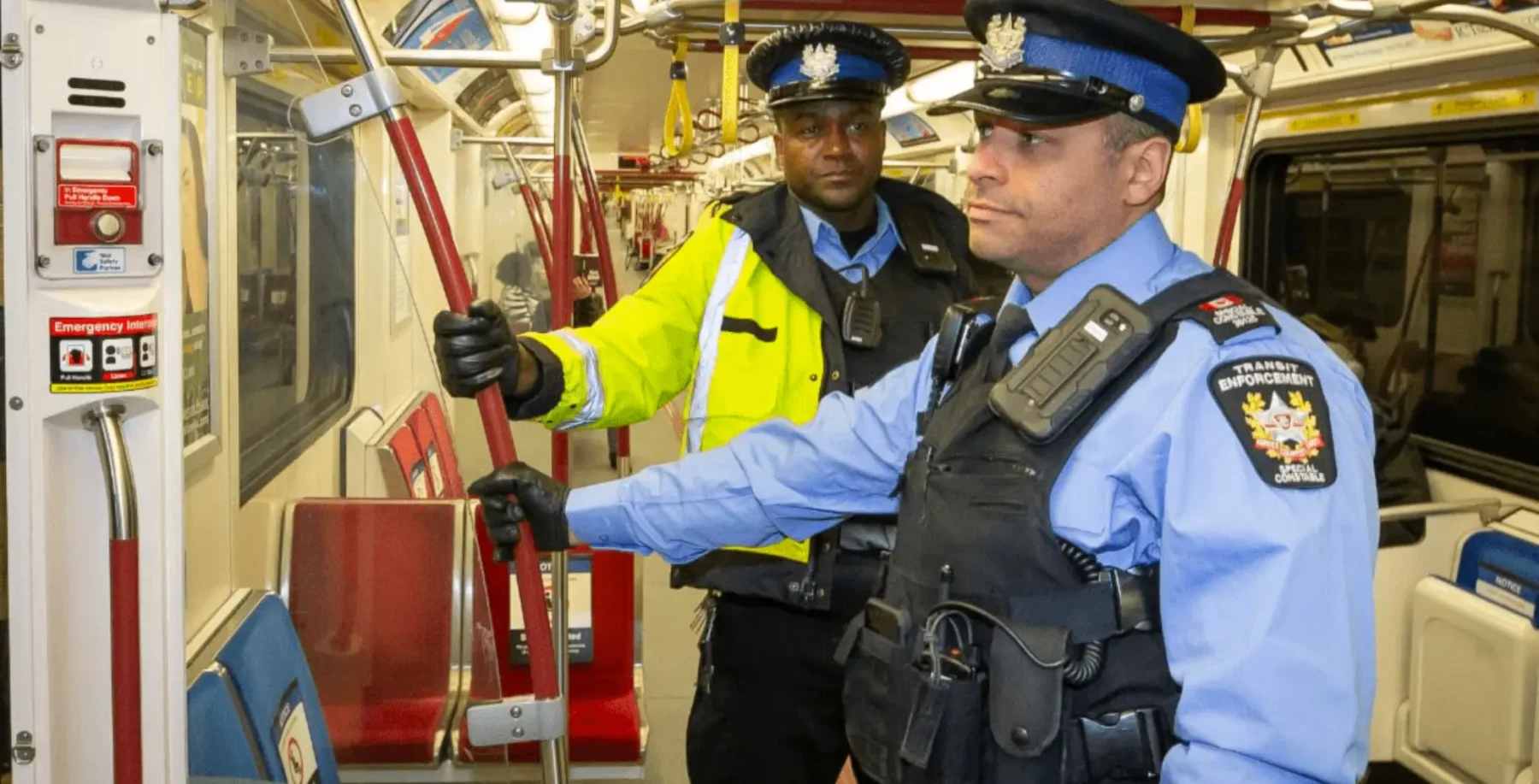
Canadians anxiously waiting to see if Toronto Maple Leafs star Auston Matthews will hit 70 goals this season

A Jamaican food redo? Keith Lee visited a Caribbean restaurant in Scarborough and things didn’t go as planned

Toronto could topple Vancouver as Canada’s most expensive city to buy a home by the end of this year: report

‘We serve one overlord and it’s the Westons,’ Loblaw has a new No Name cellphone plan and some Canadians think it’s outrageous

Canadians are skeptical 30-year mortgage amortization period will make it easier to buy a new home

Events happening in Toronto this weekend: Apr. 12-14

Rain rain go away, weather alerts in effect for Toronto following days of downpours
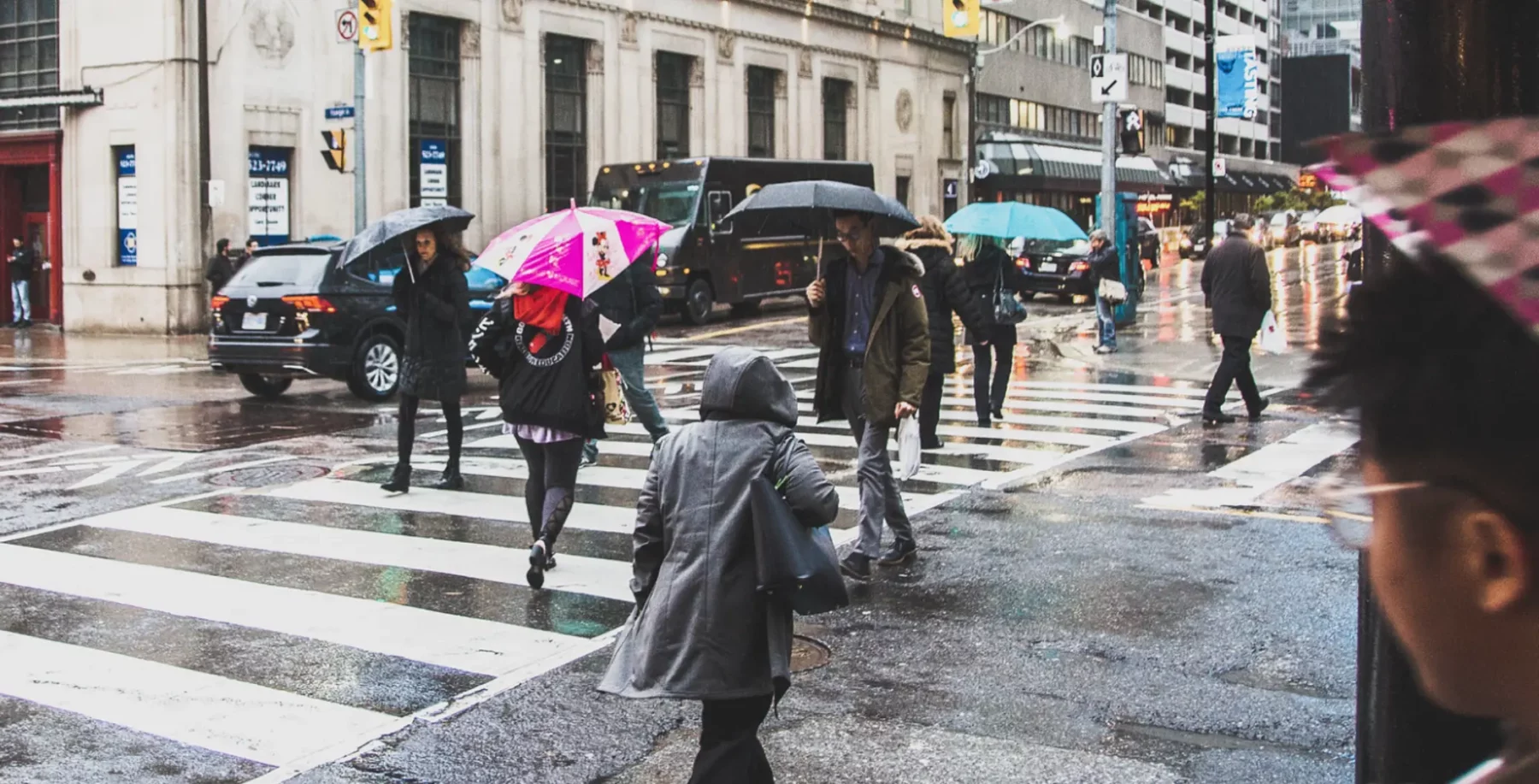
‘I have a problem with all of it,’ Alberta minister calls out huge jugs of vodka sold for nearly $50

This Torontonian-turned-New-Yorker broke down why leaving Canada was the smarter choice
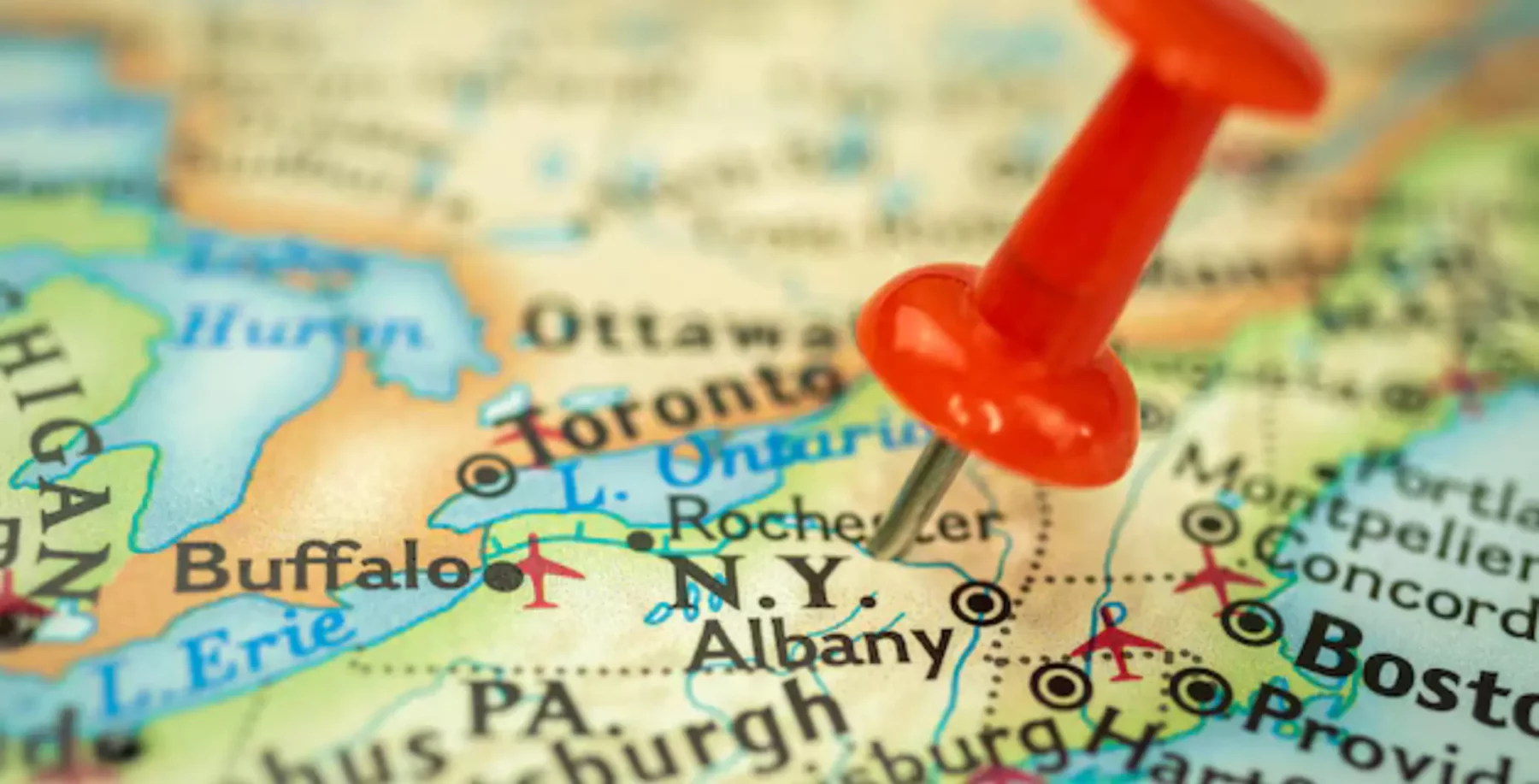
Language selection
- Français fr
Travel Health
For general public.
- Travel health notices The Public Health Agency of Canada's Travel Health Notices outline potential health risks to Canadian travellers and recommend ways to help reduce them. Notices remain in effect until removed.
- Travel Advice and Advisories Country-specific information on safety and security, local laws and customs, entry requirements, health conditions and other important travel issues.
- Yellow Fever Vaccination Centres Find a list of Yellow Fever Vaccination Centres and information about the designation process.
- Tips for healthy travel Health-related tips when travelling abroad to help you stay healthy.
- Travel health and safety Includes essential information on understanding travel health and safety risks and preventive measures to take before and during your trip.
For health professionals
- For Travel Health Professionals Information and resources for travel health professionals, including Canadian Malaria Network and other resources.
- CATMAT Statements and Recommendations Access travel health-related statements and recommendations from the Committee to Advise on Tropical Medicine and Travel (CATMAT).
For industry
- Public health reference tool for cruise ship operators This public health tool compiles references to Canadian public health resources on communicable disease prevention for cruise ship operators.
Page details
Situation in Haiti April 5, 2024
U.s. citizens in haiti, update april 12, 2024, information for u.s. citizens in the middle east.
- Travel Advisories |
- Contact Us |
- MyTravelGov |
Find U.S. Embassies & Consulates
Travel.state.gov, congressional liaison, special issuance agency, u.s. passports, international travel, intercountry adoption, international parental child abduction, records and authentications, popular links, travel advisories, mytravelgov, stay connected, legal resources, legal information, info for u.s. law enforcement, replace or certify documents.
Share this page:
Canada Travel Advisory
Travel advisory july 17, 2023, canada - level 1: exercise normal precautions.
Reissued with obsolete COVID-19 page links removed.
Exercise normal precautions in Canada.
Read the Country Information page for additional information on travel to Canada.
If you decide to travel to Canada:
- Enroll in the Smart Traveler Enrollment Program (STEP) to receive Alerts and make it easier to locate you in an emergency.
- Follow the Department of State on Facebook and Twitter .
- Review the Country Security Report for Canada.
- Prepare a contingency plan for emergency situations. Review the Traveler’s Checklist .
- Visit the CDC page for the latest Travel Health Information related to your travel. Exercise normal precautions in Canada.
Travel Advisory Levels
Assistance for u.s. citizens, search for travel advisories, external link.
You are about to leave travel.state.gov for an external website that is not maintained by the U.S. Department of State.
Links to external websites are provided as a convenience and should not be construed as an endorsement by the U.S. Department of State of the views or products contained therein. If you wish to remain on travel.state.gov, click the "cancel" message.
You are about to visit:
Travel Advisory: Can I Cancel and Get a Refund?

The Canadian Government’s recent advisory against non-essential international travel has left passengers not only with difficult decisions to make about their upcoming travel, but also wondering about their rights if they decide to cancel. Fears of forfeiting airfares make these decisions particularly challenging.
While travel advisories do not create an automatic right to cancel your trip and get a refund, there are several other ways to do so or to mitigate the financial impact of foregoing your travel:
- If the airline changes any of your originally booked flight segments, you are entitled to a full refund in the original form of payment.
- Your ticket may be refundable, although perhaps subject to a cancellation fee.
- If your ticket is changeable, but the airline is not reachable, you may rescind the contract and seek a refund.
- Some tickets are sold with guarantees for a no-fee cancellation for future credit.
- Your travel insurance policy may provide you some coverage.
Do Not Rush to Cancel
Whether to cancel your travel now or wait things out depends on a number of factors and your risk tolerance. The following are a few examples that you may want to consider:
- The more time you have until your travel, the more events can happen until then that may entitle you to a refund, and so you may want to wait things out.
- If you consider it likely that the Omicron variant will blow over relatively quickly, some normalcy in travel may return by February or March 2022, and so again, you may want to wait things out.
- If yes, you may already be in a position to insist on a refund to the original form of payment.
- If yes, you may want to start working on exercising your rights a day or two before the deadline to be on the safe side.
Before You Begin
Cancelling your travel and seeking a refund is a serious, albeit potentially necessary, decision that is not to be made lightly. Before you begin, you may want to have the following items printed out and handy:
- Original itinerary, provided to you when you booked the travel.
- Current itinerary, as shown today on the airline’s or the travel agency’s website.
- Terms and conditions of your ticket or itinerary, saved by you or provided to you when you booked the travel.
- Travel insurance policy document (if you have one).
You may also want to get a good app for recording phone calls to document all your interactions with the airlines, travel agencies, and insurance companies.
1. The Airline Changed Any of Your Flight Segments
Your ticket is a contract with the airline. As a general rule, if the airline makes unilateral changes to your itinerary, you are entitled to decline the change and insist on a refund in the original form of payment. In many cases, this right is spelled out in:
- Articles 5(1)(a), 6(1)(iii), 8(1)(a), and 7(3) of Regulation (EC) No. 261/2004 ; or
- subsections 17(2) and 17(7) of the Air Passenger Protection Regulations ( APPR ).
In other cases, you may have to invoke other federal or provincial legislation or common law doctrines.
Under Regulation (EC) No. 261/2004 , you are entitled to a refund in the original form of payment if:
- any of your flight segments were cancelled for any reason (Articles 5(1)(a), 8(1)(a), and 7(3)); or
- any of your flight segments are advanced by more than one hour (the European Court of Justice held that such a flight advancement is deemed to be a flight cancellation); or
- any of your flight segments are delayed by 5 hours or more for any reason (Articles 6(1)(iii), 8(1)(a), and 7(3)).
Under the APPR , you are entitled to a refund in the original form of payment if:
- any of your flight segments were cancelled for reasons within the airline’s control (paragraphs 11(4)(c) and 12(3)(c) ); or
- any of your flight segments are delayed by 3 hours or more for reasons within the airline’s control (paragraphs 11(3)(c) and 12(2)(c) ).
The most easily recognized situation within the airline’s control is when the airline changes a segment of your itinerary several days or weeks before your travel. It is important to recognize that these changes are flight cancellations or delays, even if the airline euphemistically calls them a “schedule change.”
- you were booked on Flight 1234, and now you are booked on Flight 5678; or
- you were booked on Flight 1234 on January 13, 2022, and now you are booked on Flight 1234 on another date; or
- your flight departs from or arrives in a city different than what is shown on your original ticket; or
- you were booked on a non-stop flight, and the airline added a stop.
- For example, you were booked on Flight 1234 on January 13, 2022 departing at 13:00, and now Flight 1234 departs at 12:00 on the same date.
- you were booked on Flight 1234 on January 13, 2022 departing at 13:00 and arriving at 18:00, and now Flight 1234 departs at 14:00 or arrives at 19:30 (or both) on the same date.
2. Refundable Ticket
A refundable ticket is one that you can cancel and obtain a refund in the original form of payment just because you no longer feel like travelling, even if the airline has made no changes at all to your flights.
A non-refundable ticket is one that you can cancel and obtain a refund in the original form of payment only if the airline makes changes to one of your flight segments. You cannot get a refund on such tickets just because you do not feel like travelling anymore.
Read and familiarize yourself with the fine print shown on the documents you received on the day of booking:
- Does your ticket state that it is refundable?
- Does your ticket state that the airline may charge a fee if you cancel and seek a refund?
- Does your ticket state time limits on cancelling and getting a refund (e.g., at least 24 hours before your flight’s departure)?
Airlines and the travel agencies cannot impose or change conditions after the ticket is sold.
3. Unreachable Travel Service Provider
If your ticket or vacation package allows you to make changes, possibly for the payment of a fee, but you cannot exercise that right because the airline or the tour operator or the travel agency is not reachable, then this may amount to breach of contract entitling you to rescind the contract and seek a full refund on that basis.
4. No-Fee Change or Cancellation for Future Credit
Since the beginning of the pandemic, airlines have been offering various additional guarantees on non-refundable tickets to mitigate passenge’s’ risk and to alleviate fears of sudden changes in air travel. These additional guarantees include no-fee change or cancellation for future credit.
While travel credits are far less valuable than cash, it may be a way to mitigate your losses in cases where the airline still operates all your original flights but you choose not to travel. While the airline may claim that travel credits expire after a certain amount of time, this may not be legal in several Canadian provinces that prohibit expiry of prepaid purchase or gift cards. (See Sharifi v. WestJet Airlines Ltd. , 2020 BCSC 1996 for more details.)
5. Travel Insurance
Travel insurance policies you purchased or that are part of your credit card may cover some of your losses. Insurance policies cover only specific risks set out in the policy language, and no other risks. Read and familiarize yourself with your policy language:
- Does the policy cover situations when the passenger cancels the travel on the basis of a government-issued travel advisory?
- Will the insurance reimburse you if the airline is willing to provide credit for future travel?
- Do you have to give the insurance company notice within a certain number of hours or days?
Before you decide to rely on your insurance, you may want to call your insurance underwriter, and thoroughly question them. Do not forget to record your calls, as they may be used as evidence if you are subsequently denied coverage.
Please support this non-profit site that turns helpless passengers into empowered travellers.
- New Refund Regulations Shortchange Canadians
- WestJet’s Explanation Rings Hollow
- Airline Refunds: Proposed Regulations Miss the Mark
- House of Commons Committee Vindicates Passengers' Right to Refund
- Airline Refunds: Address to the House of Commons Finance Committee
- Airline Refunds: Address to the House of Commons Transport Committee
- Airline Refunds: Four Questions about Minister Garneau’s Announcement
- Consumer Advocacy Group Urges Members of Parliament to Pass Bill Declaring Right to Refund for Cancelled Flights
- The Straw That Broke the Camel’s Back: The Airlines Have Gone Too Far
- Air Canada at War
- Air Canada wins best airline in North America for fourth straight year (The Star)
- Passengers stuck on sweltering plane in Jamaica denied compensation by WestJet (CTV News)
- Frustrated fliers file thousands of travel-related complaints in past few months (Global News)
- Delays and cancellations as WestJet still dealing with weekend outage (CHEK News)
- Pearson airport hikes user fees to new high after summer of chaos (The Star)
- User fees at Toronto Pearson International Airport set to rise next year (Global News)
- Air Canada passenger’s bag arrives destroyed. A nightmare followed (Global News)
- London, Ont., couple's luggage returned with help of GPS tracker and a Good Samaritan (CBC)
- Compensating passengers for flight disruptions not enough: Advocate (CP)
- ‘Simply misinformation’: new travel regulations create exploitable loophole, critics say (Global News)
- Skip to main content
- Skip to "About this site"
Language selection
Search travel.gc.ca.
Help us to improve our website. Take our survey !
COVID-19: travel health notice for all travellers
United States travel advice
Latest updates: Health – editorial update
Last updated: March 28, 2024 07:53 ET
On this page
Safety and security, entry and exit requirements, laws and culture, natural disasters and climate, united states - take normal security precautions.
Take normal security precautions in the United States
Back to top
Border with Mexico
Criminal incidents associated with drug trafficking are more frequent at the border with Mexico, in the following states:
If crossing the U.S.– Mexico border by car:
- remain extremely vigilant
- only use officially recognized border crossings
- avoid travelling at night
Petty crime
Petty crime, such as pickpocketing and purse snatching, occurs, particularly in urban centres and tourist locations.
- Don’t leave bags or valuables unattended in parked cars, especially rental vehicles, even in trunks
- Ensure that your belongings, including passports and other travel documents, are secure at all times
Violent crime
Within large urban areas, violent crime more commonly occurs in poor neighbourhoods, particularly from dusk to dawn. It often involves intoxication. Incidents of violent crime are mainly carried out by gangs or members of organized crime groups but may also be perpetrated by lone individuals. Although violent crime rarely affects tourists:
- be mindful of your surroundings at all time
- verify official neighbourhood crime statistics before planning an outing
- if threatened by robbers, stay calm and don’t resist
Crime Data Explorer – Federal Bureau of Investigation
Gun violence
The rate of firearm possession in the US is high. It’s legal in many states for US citizens to openly carry firearms in public.
Incidences of mass shootings occur, resulting most often in casualties. Although tourists are rarely involved, there is a risk of being in the wrong place at the wrong time.
Familiarize yourself on how to respond to an active shooter situation.
Active Shooter Event Quick Reference Guide - Cybersecurity and Infrastructure Security Agency
Home break-ins
Canadians living in holiday homes have been the victims of break-ins and burglary.
Make sure you lock windows and doors securely at night and when you are away.
Common criminal strategies
Be on alert for robbery ploys targeting visitors.
Some criminals on highways target travellers leaving airports or other tourist destinations. They signal tourists to stop due to an issue with their vehicle. They then wait for the driver to pull over or exit the car before grabbing exposed valuables. Criminals may also throw items at the windshield, obscuring the view of the road and forcing the driver to pull over.
If you’re the victim of such a ploy:
- avoid pulling over on the side of the road
- put on your hazard lights and slowly drive to a gas station, police station or other safe and populated area
Demonstrations
Demonstrations may occur. Even peaceful demonstrations can turn violent at any time. They can also lead to disruptions to traffic and public transportation.
- Avoid areas where demonstrations and large gatherings are taking place
- Follow the instructions of local authorities
- Monitor local media for information on ongoing demonstrations
Mass gatherings (large-scale events)
Credit card and ATM fraud occurs, including debit card cloning. Be cautious when using debit or credit cards:
- pay careful attention when your cards are being handled by others
- use ATMs located in well-lit public areas or inside a bank or business
- avoid using card readers with an irregular or unusual feature
- cover the keypad with one hand when entering your PIN
- check for any unauthorized transactions on your account statements
Overseas fraud
There is a threat of terrorism. Terrorist attacks could occur at any time.
Targets could include:
- government buildings, including schools
- places of worship
- airports and other transportation hubs and networks
- public areas such as tourist attractions, restaurants, bars, coffee shops, shopping centres, markets, and hotels
Always be aware of your surroundings when in public places.
The U.S. Department of Homeland Security (DHS) maintains a public alert system on terrorism to communicate information about terrorist threats.
National Terrorism Advisory System – U.S. Department of Homeland Security
Hiking and mountaineering
If you intend on hiking, backpacking or skiing:
- never practise these activities alone and always hire an experienced guide from a reputable company
- buy travel insurance that includes helicopter rescue and medical evacuation
- obtain detailed information on hiking routes or ski slopes before setting out and do not venture off marked trails or slopes
- ensure that your physical condition is good enough to meet the challenges of your activity
- ensure that you are properly equipped and well informed about weather and other conditions that may pose a hazard
- inform a family member or friend of your itinerary, including when you expect to be back to camp
- know the symptoms of acute altitude sickness, which can be fatal
We do not make assessments on the compliance of foreign domestic airlines with international safety standards.
Information about foreign domestic airlines
Every country or territory decides who can enter or exit through its borders. The Government of Canada cannot intervene on your behalf if you do not meet your destination’s entry or exit requirements.
We have obtained the information on this page from the US authorities. It can, however, change at any time.
Verify this information with the Foreign Representatives in Canada .
You must provide proof of your Canadian citizenship upon entry to the U.S. There are several documents that can satisfy this requirement.
Travel by air
Canadian citizens travelling by air to the United States must present one of the following documents:
- a passport, which must be valid for the duration of their stay
- a valid NEXUS card, used at self-serve kiosks at designated airports
This requirement applies to all Canadian citizens, including children, travelling by air to or even just transiting through the United States.
Useful links
- Canadian passports
- Mobile Passport Control app – U.S. Customs and Border Protection
Travel by land or water
As per the Western Hemisphere Travel Initiative (WHTI), Canadian citizens aged 16 years and older must present one of the following documents when entering the United States by land or water:
- a valid passport
- a Trusted Traveler Program card
- an enhanced driver’s licence (EDL) or enhanced identification card (EIC) from a province or territory where a U.S. approved EDL/EIC program has been implemented
- a Secure Certificate of Indian Status
The WHTI-compliant document you choose to use must be valid for the duration of your stay.
Canadian citizens aged 15 years and under entering the United States by land or water require one of the following documents:
- an original or a copy of a birth certificate
- an original Canadian citizenship certificate
- Western Hemisphere Travel Initiative (WHTI ) – U.S. Customs and Border Protection
- Trusted Traveler Programs – U.S. Customs and Border Protection
- Enhanced Driver’s Licenses: What Are They? – U.S. Department of Homeland Security
- Apply for a Secure Certificate of Indian Status – Indigenous Services Canada
Other travel documents
Different entry rules may apply when travelling with a temporary passport or an emergency travel document. Before you leave, check with the closest diplomatic mission for your destination.
- Foreign representatives in Canada
Additional information at borders
Customs officials may ask you to provide your address while in the United States (including Puerto Rico). Customs Border Protection (CBP) officers may also ask for:
- evidence of residential, employment or educational ties to Canada
- proof that the trip is for a legitimate purpose and is of a reasonable length
- proof of sufficient funds to cover your stay
Dual citizens
Although U.S. authorities don’t formally require dual nationals to carry both a U.S. and a Canadian passport, carrying both documents as proof of citizenship may facilitate your entry into the United States and your return to Canada.
- Travelling as a dual citizen
- Dual Nationality – U.S. Department of State, Bureau of Consular Affairs
Canadian visitors can usually stay in the United States for 6 months without a visa. You must declare your intended duration of stay upon entry into the United States.
In most circumstances, Canadian citizens don’t require visitor, business, transit or other visas to enter the United States from Canada but there are some exceptions.
Canadians Requiring Visas – U.S. Embassy & Consulates in Canada
Canadian permanent residents
Canadian permanent residents may need a non-immigrant visa to enter the United States.
You must obtain this visa from the U.S. authorities before entering the country. You must also have a valid passport from your country of citizenship.
Cross U.S. Borders – U.S. Customs and Border Protection
Visa Waiver Program
If you are a citizen of a country that is part of the visa waiver program (VWP), you don’t need a visa to enter the U.S. for stays up to 90 days. Instead, you must obtain pre-travel authorization via the Electronic System for Travel Authorization (ESTA) prior your departure.
- Visa Waiver Program – U.S. Customs and Border Protection
- Countries participating in the Visa Waiver Program – U.S. Customs and Border Protection
- Electronic System for Travel Authorization (ESTA) – U.S. Department of Homeland Security
You must also carry proof of Permanent Resident Status in Canada upon re-entry into Canada.
U.S. permanent residents
Canadians who are permanent residents of the United States must present a valid U.S. permanent resident card upon entry.
International travel as a U.S. Permanent Resident – U.S. Citizenship and Immigration Services
First Nations and Native Americans born in Canada
Members of Canada’s First Nations and Native Americans born in Canada may freely enter the United States for the purposes of employment, study, retirement, investing, or immigration.
- Entry and exit for First Nations and Native Americans – U.S. Embassy & Consulates in Canada
- Green Card for an American Indian Born in Canada – U.S. Citizenship and Immigration Services
Working in the United States
Most Canadian business travellers may apply for admission at a U.S. port of entry without first obtaining a non-immigrant visa. However, travellers entering the United States in certain business-related categories are required to present specific documents to establish eligibility for admission.
If you plan to work in the United States, contact the nearest U.S. embassy or consulate for specific requirements.
- Foreign Representatives in Canada
Studying in the United States
Canadian citizens don’t need visas to study or participate in a student exchange program in the United States. However, they need to be registered with SEVIS, a U.S. student tracking system. Students must present their registration form to CBP officers each time they enter the United States.
- SEVIS – U.S. Department of Homeland Security
- Canadian students – U.S. Embassy & Consulates in Canada
Length of stay
If you wish to stay longer than 6 months, you must apply for an extension at the nearest U.S. Citizenship and Immigration Services (USCIS) office once you are in the United States and before the expiry of your initial authorized stay. Immigration officers may ask you to demonstrate that you are a temporary visitor in the United States.
The U.S. government strictly enforces immigration regulations. Remaining in the United States beyond your authorized period of stay can result in serious consequences such as detention or deportation.
There is no set period that you must wait to re-enter the United States after the end of your authorized stay. However, if a CBP officer suspects you are spending more time in the United States than in Canada, it will be up to you to prove to the officer that you are a temporary visitor, not a U.S. resident.
Extend your stay – U.S. Citizenship and Immigration Services
Upon entry into the United States, non-U.S. citizens must provide biometrics, such as digital fingerprints and a photograph.
Most Canadian citizens are exempt from this requirement. However, it will apply to Canadian citizens who:
- need a visa or a waiver of ineligibility
- must obtain an I-94 Arrival/Departure Record form to document dates of entry and exit from the country
Random screenings of exempt Canadians have occurred at border crossings and airports. If you feel that your information has been wrongfully collected, you can address the issue directly with the U.S. Department of Homeland Security.
- Biometrics – U.S. Department of Homeland Security
- Arrival/Departure Forms: I-94 and I-94W – U.S. Customs and Border Protection
Electronic devices
U.S. border agents are entitled to search your electronic devices, such as your phones, computers or tablets, when you are entering the United States. They don’t need to provide a reason when requesting a password to open your device.
If you refuse, they may seize your device. The border agent could also delay your travel or deny entry if you are not a U.S. citizen.
Before crossing the border, put your device in airplane mode to ensure remote files don’t get downloaded accidentally.
Inspection of Electronic Devices – U.S. Customs and Border Protection

Preclearance
The preclearance service provides clearance for entry into the United States for persons and their luggage at a Canadian preclearance airport before departure instead of on arrival in the United States.
When using U.S. preclearance facilities at a Canadian airport, you must meet U.S. entry requirements. You will be interviewed by a U.S. preclearance officer. They are authorized to inspect your luggage and can refuse you entry into the United States.
It’s an offence under Canada’s Preclearance Act to knowingly make a false or deceptive statement to a preclearance officer. While you are in a preclearance area, you are subject to Canadian law, including:
- the Canadian Charter of Rights and Freedoms
- the Canadian Bill of Rights
- the Canadian Human Rights Act
- Canada’s Preclearance Act
- Canadian criminal law
You may withdraw your request to enter the United States and leave the preclearance area at any time unless a U.S. preclearance officer suspects on reasonable grounds that you have made a false or deceptive statement or obstructed an officer. The officer may then detain you for violations of Canadian law.
Preclearance Locations – U.S. Customs and Border Protection
Criminal Record
If you have a criminal record, no matter the severity or the date of the offence, you may be refused entry to the United States. You may also experience problems when travelling through U.S. airport facilities. A pardon for an offence issued by Canadian authorities is not recognized under U.S. law to enter the United States.
If you are ineligible to enter the United States, you may apply directly to U.S. Customs and Border Protection for a temporary waiver of inadmissibility via the nearest U.S. embassy or consulate. Canadian citizens may also apply at land borders.
U.S. ports of entry are computerized and connected to a centralized database. Information is readily available on criminal convictions in both Canada and the United States. Even though you may have entered the United States without hindrance in the past, you could run into difficulty if your record shows a criminal conviction or a previous denial of entry. Attempting to gain entry without a waiver could result in several weeks of detention and a permanent ban from entering the United States.
- Applying for Waiver – Person entering into the United States with criminal record or overstay – U.S. Customs and Border Protection
Previous use of cannabis, or any substance prohibited by U.S. federal laws, could mean that you are denied entry to the U.S. If you attempt to enter the U.S. for reasons related to the cannabis industry, you may be deemed inadmissible.
- Cannabis and international travel
- Cannabis and the U.S. – U.S. Embassy and Consulates in Canada
- Laws pertaining to cannabis
Boating in U.S. waters
Operators of small pleasure vessels arriving in the United States from a foreign port must report their arrival to U.S. Customs and Border Protection immediately for face-to-face inspection at a designated reporting location.
Some exceptions apply, including under Nexus Marine.
Pleasure Boat Reporting Requirements – U.S. Customs and Border Protection
You must have a valid Canadian passport to take a cruise from the United States. Some of the countries you visit will not permit entry without a passport. A passport is also important to re-enter the United States at the end of the cruise.
Ship authorities might retain your passport during the cruise, in accordance with their own administrative regulations and to facilitate clearance with U.S. Immigration.
If your passport is kept:
- obtain a receipt
- ensure you recuperate your passport at the end of the cruise
- always keep a photocopy of your passport with you
When examined at a port of entry, cats and dogs must show no signs of diseases communicable to humans. If there is evidence of poor animal health, you may need to get your pet examined by a licensed veterinarian, at your own expense. U.S. authorities may also require a health certificate.
Dogs must be vaccinated against rabies at least 30 days before entry, except for puppies under 3 months of age. Vaccination against rabies is not required for cats.
Other animals are also subject to controls or quarantine requirements.
Bringing Pets and Wildlife into the United States – U.S. Customs and Border Protection
Children and travel
Canadian citizens under 19 travelling with a school or other organized group under adult supervision must travel with written consent from their own parent/guardian.
- Children: Traveling into the U.S. as Canadian Citizen – U.S. Customs and Border Protection
- Consent letter for travel with children
- Travelling with children
Yellow fever
Learn about potential entry requirements related to yellow fever (vaccines section).
Relevant Travel Health Notices
- Global Measles Notice - 13 March, 2024
- Zika virus: Advice for travellers - 31 August, 2023
- COVID-19 and International Travel - 13 March, 2024
This section contains information on possible health risks and restrictions regularly found or ongoing in the destination. Follow this advice to lower your risk of becoming ill while travelling. Not all risks are listed below.
Consult a health care professional or visit a travel health clinic preferably 6 weeks before you travel to get personalized health advice and recommendations.
Routine vaccines
Be sure that your routine vaccinations , as per your province or territory , are up-to-date before travelling, regardless of your destination.
Some of these vaccinations include measles-mumps-rubella (MMR), diphtheria, tetanus, pertussis, polio, varicella (chickenpox), influenza and others.
Pre-travel vaccines and medications
You may be at risk for preventable diseases while travelling in this destination. Talk to a travel health professional about which medications or vaccines may be right for you, based on your destination and itinerary.
Yellow fever is a disease caused by a flavivirus from the bite of an infected mosquito.
Travellers get vaccinated either because it is required to enter a country or because it is recommended for their protection.
- There is no risk of yellow fever in this country.
Country Entry Requirement*
- Proof of vaccination is not required to enter this country.
Recommendation
- Vaccination is not recommended.
* It is important to note that country entry requirements may not reflect your risk of yellow fever at your destination. It is recommended that you contact the nearest diplomatic or consular office of the destination(s) you will be visiting to verify any additional entry requirements.
About Yellow Fever
Yellow Fever Vaccination Centres in Canada
Measles is a highly contagious viral disease. It can spread quickly from person to person by direct contact and through droplets in the air.
Anyone who is not protected against measles is at risk of being infected with it when travelling internationally.
Regardless of where you are going, talk to a health care professional before travelling to make sure you are fully protected against measles.
Hepatitis B is a risk in every destination. It is a viral liver disease that is easily transmitted from one person to another through exposure to blood and body fluids containing the hepatitis B virus. Travellers who may be exposed to blood or other bodily fluids (e.g., through sexual contact, medical treatment, sharing needles, tattooing, acupuncture or occupational exposure) are at higher risk of getting hepatitis B.
Hepatitis B vaccination is recommended for all travellers. Prevent hepatitis B infection by practicing safe sex, only using new and sterile drug equipment, and only getting tattoos and piercings in settings that follow public health regulations and standards.
The best way to protect yourself from seasonal influenza (flu) is to get vaccinated every year. Get the flu shot at least 2 weeks before travelling.
The flu occurs worldwide.
- In the Northern Hemisphere, the flu season usually runs from November to April.
- In the Southern Hemisphere, the flu season usually runs between April and October.
- In the tropics, there is flu activity year round.
The flu vaccine available in one hemisphere may only offer partial protection against the flu in the other hemisphere.
The flu virus spreads from person to person when they cough or sneeze or by touching objects and surfaces that have been contaminated with the virus. Clean your hands often and wear a mask if you have a fever or respiratory symptoms.
Coronavirus disease (COVID-19) is an infectious viral disease. It can spread from person to person by direct contact and through droplets in the air.
It is recommended that all eligible travellers complete a COVID-19 vaccine series along with any additional recommended doses in Canada before travelling. Evidence shows that vaccines are very effective at preventing severe illness, hospitalization and death from COVID-19. While vaccination provides better protection against serious illness, you may still be at risk of infection from the virus that causes COVID-19. Anyone who has not completed a vaccine series is at increased risk of being infected with the virus that causes COVID-19 and is at greater risk for severe disease when travelling internationally.
Before travelling, verify your destination’s COVID-19 vaccination entry/exit requirements. Regardless of where you are going, talk to a health care professional before travelling to make sure you are adequately protected against COVID-19.
In this destination, rabies may be present in some wildlife species, including bats. Rabies is a deadly disease that spreads to humans primarily through bites or scratches from an infected animal.
If you are bitten or scratched by an animal while travelling, immediately wash the wound with soap and clean water and see a health care professional.
Before travel, discuss rabies vaccination with a health care professional. It may be recommended for travellers who will be working directly with wildlife.
Polio (poliomyelitis) is an infectious disease that can be prevented by vaccination. It is caused by poliovirus type 1, 2 or 3. Circulating vaccine-derived poliovirus 2 (cVDPV2) is present in this country. Polio is spread from person to person and through contaminated food and water. Infection with the polio virus can cause paralysis and death in individuals of any age who are not immune.
Recommendations:
- Be sure that your polio vaccinations are up to date before travelling. Polio is part of the routine vaccine schedule for children in Canada.
- One booster dose of the polio vaccine is recommended as an adult .
Safe food and water precautions
Many illnesses can be caused by eating food or drinking beverages contaminated by bacteria, parasites, toxins, or viruses, or by swimming or bathing in contaminated water.
- Learn more about food and water precautions to take to avoid getting sick by visiting our eat and drink safely abroad page. Remember: Boil it, cook it, peel it, or leave it!
- Avoid getting water into your eyes, mouth or nose when swimming or participating in activities in freshwater (streams, canals, lakes), particularly after flooding or heavy rain. Water may look clean but could still be polluted or contaminated.
- Avoid inhaling or swallowing water while bathing, showering, or swimming in pools or hot tubs.
Insect bite prevention
Many diseases are spread by the bites of infected insects such as mosquitoes, ticks, fleas or flies. When travelling to areas where infected insects may be present:
- Use insect repellent (bug spray) on exposed skin
- Cover up with light-coloured, loose clothes made of tightly woven materials such as nylon or polyester
- Minimize exposure to insects
- Use mosquito netting when sleeping outdoors or in buildings that are not fully enclosed
To learn more about how you can reduce your risk of infection and disease caused by bites, both at home and abroad, visit our insect bite prevention page.
Find out what types of insects are present where you’re travelling, when they’re most active, and the symptoms of the diseases they spread.
Zika virus may be a risk in some areas of the United States.
Zika virus is primarily spread through the bite of an infected mosquito. It can also be sexually transmitted. Zika virus can cause serious birth defects.
Visit the Centers for Disease Control and Prevention’s webpage Areas at Risk for Zika for the most up-to-date information on Zika risk in the United States.
During your trip to a Zika risk area:
- Prevent mosquito bites at all times.
- Use condoms correctly or avoid sexual contact, particularly if you are pregnant.
If you are pregnant or planning a pregnancy, you should discuss the potential risks of travelling to areas where Zika is a risk with your health care provider. You may choose to avoid or postpone travel to these areas.
For more information, see Zika virus: Pregnant or planning a pregnancy .
- In this country, risk of dengue is sporadic. It is a viral disease spread to humans by mosquito bites.
- Dengue can cause flu-like symptoms. In some cases, it can lead to severe dengue, which can be fatal.
- Visit the Centers for Disease Control and Preventions webpage on Dengue in the U.S. States and Territories for the most up-to-date information on dengue outbreaks in the United States
- Mosquitoes carrying dengue typically bite during the daytime, particularly around sunrise and sunset.
- Protect yourself from mosquito bites . There is no vaccine or medication that protects against dengue fever.
Animal precautions
Some infections, such as rabies and influenza, can be shared between humans and animals. Certain types of activities may increase your chance of contact with animals, such as travelling in rural or forested areas, camping, hiking, and visiting wet markets (places where live animals are slaughtered and sold) or caves.
Travellers are cautioned to avoid contact with animals, including dogs, livestock (pigs, cows), monkeys, snakes, rodents, birds, and bats, and to avoid eating undercooked wild game.
Closely supervise children, as they are more likely to come in contact with animals.
Human cases of avian influenza have been reported in this destination. Avian influenza is a viral infection that can spread quickly and easily among birds and in rare cases it can infect mammals, including people. The risk is low for most travellers.
Avoid contact with birds, including wild, farm, and backyard birds (alive or dead) and surfaces that may have bird droppings on them. Ensure all poultry dishes, including eggs and wild game, are properly cooked.
Travellers with a higher risk of exposure include those:
- visiting live bird/animal markets or poultry farms
- working with poultry (such as chickens, turkeys, domestic ducks)
- hunting, de-feathering, field dressing and butchering wild birds and wild mammals
- working with wild birds for activities such as research, conservation, or rehabilitation
- working with wild mammals, especially those that eat wild birds (e.g., foxes)
All eligible people are encouraged to get the seasonal influenza shot, which will protect them against human influenza viruses. While the seasonal influenza shot does not prevent infection with avian influenza, it can reduce the chance of getting sick with human and avian influenza viruses at the same time.
Person-to-person infections
Stay home if you’re sick and practise proper cough and sneeze etiquette , which includes coughing or sneezing into a tissue or the bend of your arm, not your hand. Reduce your risk of colds, the flu and other illnesses by:
- washing your hands often
- avoiding or limiting the amount of time spent in closed spaces, crowded places, or at large-scale events (concerts, sporting events, rallies)
- avoiding close physical contact with people who may be showing symptoms of illness
Sexually transmitted infections (STIs) , HIV , and mpox are spread through blood and bodily fluids; use condoms, practise safe sex, and limit your number of sexual partners. Check with your local public health authority pre-travel to determine your eligibility for mpox vaccine.
Medical services and facilities
Health care is excellent. Service is available throughout the country. However, treatment costs are expensive.
All hospitals must accept and treat emergencies, regardless of the person’s ability to pay. Clients will, however, be charged for all services rendered. Foreign visitors without travel health insurance will have to pay out of pocket for their medical treatment.
Make sure you get travel insurance that includes coverage for medical evacuation and hospital stays.
Travel health and safety
There are restrictions and prohibitions on the import of certain prescription drugs into the United States.
Some medication that can be purchased over-the-counter in Canada is restricted to prescription-only status in the United States.
- Bring sufficient quantities of your medication
- Ensure to have a physician’s note explaining your medical condition, if applicable
Keep in Mind...
The decision to travel is the sole responsibility of the traveller. The traveller is also responsible for his or her own personal safety.
Be prepared. Do not expect medical services to be the same as in Canada. Pack a travel health kit , especially if you will be travelling away from major city centres.
You must abide by local laws.
Learn about what you should do and how we can help if you are arrested or detained abroad .
Laws vary greatly from state to state. Consult the website of the state you wish to visit prior to arrival.
Penalties and transfer of offenders
A serious violation of the law may lead to a jail sentence or, in some states, a death sentence. Canadian citizenship confers no immunity, special protection or rights to preferential treatment.
If a jail sentence is imposed, it will be served in a U.S. prison, unless a request for a transfer to a Canadian prison is approved by the United States and Canada. Both countries have signed a treaty that permits a Canadian imprisoned in the United States to request a transfer to complete the sentence in a Canadian prison.
Penalties for possession, use or trafficking of illegal drugs are severe. Convicted offenders can expect lengthy jail sentences and heavy fines.
Drugs, alcohol and travel
Although the possession of cannabis is legal in some U.S. states, it remains illegal under U.S. federal laws in any form and quantity, making it illegal to bring across the Canada-U.S. border.
Don’t attempt to cross the Canada-U.S. border with any amount of cannabis in any form, even if you are traveling to a U.S. state that has legalized possession of cannabis. If you do so, you can expect legal prosecution and fines, and possibly jail time.
- Entry/exit requirements pertaining to cannabis
Prescription medication
Personal medication may be subject to U.S. drug importation laws and regulations.
In general, personal importation of a 90-day supply of medication is allowed. U.S. Customs and Border Protection has absolute discretion to allow or not your Canadian-purchased medication into the United States.
When taking any prescription medication to the United States, it’s important to:
- take only the quantity that you would normally take for the number of days you will be in the United States, plus an additional week’s worth
- pack medicines in their original packaging with the dispensary label intact that shows your name and other pertinent information such as the drug’s name, dosage and DIN (drug identification number)
- keep a duplicate of your original prescription, listing both the generic and trade names of the drug
- have a physician’s note explaining your condition and the reason for you to be legitimately carrying syringes, if applicable
Prohibited and restricted items – U.S. Customs and Border Protection
2SLGBTQI+ travellers
Some states have enacted laws and policies that may affect 2SLGBTQI+ persons. Check relevant state and local laws.
Travel and your sexual orientation, gender identity, gender expression and sex characteristics
Dual citizenship
Dual citizenship is legally recognized in the United States .
If you are a Canadian citizen, but also a citizen of the United States , our ability to offer you consular services may be limited while you're there. You may also be subject to different entry/exit requirements .
- General information for travellers with dual citizenship
International Child Abduction
The Hague Convention on the Civil Aspects of International Child Abduction is an international treaty. It can help parents with the return of children who have been removed to or retained in certain countries in violation of custody rights. The convention applies between Canada and the United States.
If your child was wrongfully taken to, or is being held in the United States, and if the applicable conditions are met, you may apply for the return of your child to the American court.
If you are in this situation:
- act as quickly as you can
- contact the Central Authority for your province or territory of residence for information on starting an application under The Hague Convention
- consult a lawyer in Canada and in the United States to explore all the legal options for the return of your child
- report the situation to the nearest Canadian government office abroad or to the Vulnerable Children’s Consular Unit at Global Affairs Canada by calling the Emergency Watch and Response Centre
If your child was removed from a country other than Canada, consult a lawyer to determine if The Hague Convention applies.
Be aware that Canadian consular officials cannot interfere in private legal matters or in another country’s judicial affairs.
- List of Canadian Central Authorities for the Hague Convention
- International Child Abduction: A Guidebook for Left-Behind Parents
- The Hague Convention - Hague Conference on Private International Law
- Canadian embassies and consulates by destination
- Emergency Watch and Response Centre
Expedited removal
U.S. Customs and Border Protection can bar non-citizens from the United States for five years if, in their judgment, the individuals presented false documentation or misrepresented themselves. Lying to a customs official is a serious offence.
There is no formal appeal process under expedited removal. However, if you believe the law has been misapplied in your case, you can request a supervisory review by writing to the U.S. Citizenship and Immigration Services district director responsible for the port of entry where the decision was made.
Find a USCIS office – U.S. Citizenship and Immigration Services
Imports and exports
Contact the specific U.S. Customs and Border Protection office at the Canada/U.S. border crossing you are planning to use before starting your trip for the latest information on allowances and restrictions on bringing items into the United States. These change frequently.
Declare all items at your point of entry.
Contact information for USCBP – U.S. Customs and Border Protection
Travel to Cuba from the United States
Existing U.S. sanctions restrict travel between the United States and Cuba. Tourists may not travel between the two countries. However, you may go to Cuba from the United States on other types of travel, if you meet certain requirements.
Cuba sanctions – U.S. Department of the Treasury
You can drive in the United States if you have a valid Canadian driver’s license.
Traffic laws can vary from state to state.
Automobile insurance
Many states have mandatory automobile insurance requirements, and many require motorists to carry appropriate proof of insurance. Each state’s motor vehicles department can give you more specific information.
If you are in the United States and wish to drive to Mexico in your personal vehicle, you may need to purchase liability insurance and additional auto insurance.
- Foreign Nationals Driving in the U.S. – U.S. government
- States’ motor vehicle department – U.S. government
- Canadian Automobile Association
- American Automobile Association
- Road safety risks when travelling by land to Mexico
- Travel advice for Mexico
Hitchhiking
Never cross the border with a hitchhiker or as a hitchhiker. Though you may not be carrying anything illegal, the hitchhiker or driver might be, and you could be implicated.
Be equally careful about who and what you carry in your vehicle. As the driver, you could be held responsible for the misdeeds and belongings of your passengers, even if you were unaware of the problem.
The currency in the United States is the U.S. dollar (USD).
Canadian currency and personal cheques from Canadian banks are not widely accepted. Most banking transactions require a U.S. bank account.
There’s no limit to the amount of money that you may legally take into or out of the United States. However, you must declare to U.S. Customs and Border Protection:
- if you carry more than US$10,000 (in cash, cheque, money order, travellers’ cheque or any other convertible asset) into or out of the United States
- if you will receive more than US$10,000 while in the United States
Failure to comply can result in civil and criminal penalties, including seizure of the currency or monetary instruments.
Natural disasters can occur at any time.
Plan Ahead for Disasters – U.S. Department of Homeland Security
Hurricanes usually occur from:
- May to November in the eastern Pacific Ocean, including Hawaii and Guam
- June to November in the Atlantic Ocean, the Caribbean Sea and the Gulf of Mexico
These severe storms can put you at risk and hamper the provision of essential services.
If you decide to travel to these regions during the hurricane season:
- know that you expose yourself to serious safety risks
- be prepared to change your travel plans on short notice, including cutting short or cancelling your trip
- stay informed of the latest regional weather forecasts
- carry emergency contact information for your airline or tour operator
- follow the advice and instructions of local authorities
- Tornadoes, cyclones, hurricanes, typhoons and monsoons
- Large-scale emergencies abroad
- Latest advisories – U.S. National Hurricane Center
- US National Weather Service
Seasonal flooding can hamper overland travel and reduce the provision of essential services. Roads may become impassable and bridges damaged.
- Stay away from flooded areas
- Follow the advice of local authorities
- Monitor local news to stay up-to-date on the current situation
Earthquakes
Earthquakes pose a risk in the following states:
- Washington State
If you’re in an area prone to earthquakes, familiarize yourself with emergency procedures.
- Earthquake - Get prepared
- Earthquakes – Federal Emergency Management
Heat and humidity
Humidity and heat may be most severe during the hot season, from June to September, particularly in the South and South-West of the country.
Know the symptoms of dehydration and heatstroke, which can both be fatal.
- Sun and heat safety tips for travellers – Government of Canada
- Heat & Health Tracker – Centers for Disease Control and Prevention
Bush and forest fires
Bush and forest fires are common and a risk across much of the United States, particularly during the summer months.
Wildfires can occur year-round but they are most common during periods of low rainfall and high temperatures.
The air quality in areas near active fires may deteriorate due to heavy smoke. In case of a major fire:
- stay away from the affected area, particularly if you suffer from respiratory ailments
- always follow the instructions of local emergency services personnel, including any evacuation order
- monitor local media for up-to-date information on the situation
- Forest fire information - National Interagency Fire Centre
- National Wildfire Risk Index – Federal Emergency Management Agency
- Latest wildfire information - United States National Wildfire Coordinating Group
- Map of wildfires – Fire weather & Avalanche Center
- California forest fires – California Department of Forestry and Fire Protection
Tornadoes pose a risk in states east of the Rocky Mountains, particularly in:
- Mississippi
U.S. National Weather Service
There are several active volcanoes in the United States.
In the event of a volcanic eruption, ash could lead to air travel disruptions. The air quality may deteriorate and affect you, especially if you suffer from respiratory ailments.
- Monitor local media for the latest updates
- Follow the advice of local authorities, including evacuation order
- Be prepared to modify your travel arrangements or even evacuate the area on short notice
- Volcanic eruptions - U.S. National Park Service
- Vog – Government of Hawaii
Tsunamis
The state of Hawaii is prone to tsunamis. A tsunami can occur within minutes of a nearby earthquake. However, the risk of tsunami can remain for several hours following the first tremor.
If you’re staying on the coast, familiarize yourself with the region’s evacuation plans in the event of a tsunami warning.
Tsunami Evacuation Zones – Government of Hawaii
Local services
Dial 911 for emergency assistance.
Consular assistance
Delaware, District of Columbia, Maryland, Virginia and West Virginia.
Alabama, Georgia, Mississippi, North Carolina, South Carolina, Tennessee.
Illinois, Indiana (Jasper, Lake, Laporte, Newton, and Porter counties), Kansas City, Kansas, Missouri, Wisconsin.
Colorado, Kansas, Montana, Utah, Wyoming.
Indiana (excluding Jasper, Lake, LaPorte, Newton and Porter counties), Kentucky, Michigan, Ohio.
Arizona, Nevada, Southern California
Florida, Puerto Rico, US Virgin Islands
Bermuda, Connecticut, New Jersey, New York State and Pennsylvania.
Northern California, Hawaii.
Alaska, Idaho, Oregon, Washington.
For emergency consular assistance, call the Embassy of Canada to the United States, in Washington, and follow the instructions. At any time, you may also contact the Emergency Watch and Response Centre in Ottawa.
You may call the Emergency Watch and Response Centre in Ottawa toll-free at 1-888-949-9993.
The decision to travel is your choice and you are responsible for your personal safety abroad. We take the safety and security of Canadians abroad very seriously and provide credible and timely information in our Travel Advice to enable you to make well-informed decisions regarding your travel abroad.
The content on this page is provided for information only. While we make every effort to give you correct information, it is provided on an "as is" basis without warranty of any kind, expressed or implied. The Government of Canada does not assume responsibility and will not be liable for any damages in connection to the information provided.
If you need consular assistance while abroad, we will make every effort to help you. However, there may be constraints that will limit the ability of the Government of Canada to provide services.
Learn more about consular services .
Risk Levels
take normal security precautions.
Take similar precautions to those you would take in Canada.
Exercise a high degree of caution
There are certain safety and security concerns or the situation could change quickly. Be very cautious at all times, monitor local media and follow the instructions of local authorities.
IMPORTANT: The two levels below are official Government of Canada Travel Advisories and are issued when the safety and security of Canadians travelling or living in the country or region may be at risk.
Avoid non-essential travel
Your safety and security could be at risk. You should think about your need to travel to this country, territory or region based on family or business requirements, knowledge of or familiarity with the region, and other factors. If you are already there, think about whether you really need to be there. If you do not need to be there, you should think about leaving.
Avoid all travel
You should not travel to this country, territory or region. Your personal safety and security are at great risk. If you are already there, you should think about leaving if it is safe to do so.
- Credit cards
- View all credit cards
- Banking guide
- Loans guide
- Insurance guide
- Personal finance
- View all personal finance
- Small business
- Small business guide
- View all taxes
You’re our first priority. Every time.
We believe everyone should be able to make financial decisions with confidence. And while our site doesn’t feature every company or financial product available on the market, we’re proud that the guidance we offer, the information we provide and the tools we create are objective, independent, straightforward — and free.
So how do we make money? Our partners compensate us. This may influence which products we review and write about (and where those products appear on the site), but it in no way affects our recommendations or advice, which are grounded in thousands of hours of research. Our partners cannot pay us to guarantee favorable reviews of their products or services. Here is a list of our partners .
The Guide to Air Canada Wi-Fi

Many or all of the products featured here are from our partners who compensate us. This influences which products we write about and where and how the product appears on a page. However, this does not influence our evaluations. Our opinions are our own. Here is a list of our partners and here's how we make money .
Table of Contents
Does Air Canada have Wi-Fi?
How much is wi-fi on air canada, does air canada have free wi-fi, how to save on air canada wi-fi costs using credit cards, how to connect to air canada wi-fi, if you want to connect to air canada wi-fi.
For some travelers, staying connected in the air is essential to flying. Whether you respond to business emails before arrival or keep up to date with your social networks, Air Canada generally offers some level of Wi-Fi access, depending on your flight details.
If you're planning an Air Canada trip soon, here’s what you should know about in-flight Air Canada Wi-Fi.
» Learn more: The points collector’s guide to Air Canada Aeroplan
All Air Canada Rouge (Air Canada's low-cost subsidiary) customers can access high-speed Wi-Fi during their flight. Premium Rogue customers can enjoy complimentary Wi-Fi, while economy customers have Wi-Fi available for purchase.
Air Canada is working on growing its Wi-Fi capable aircraft. Currently, the carrier offers Gogo-equipped Wi-Fi, but connectivity is limited to certain North American and international flights.
Nearly all of Air Canada’s wide-body planes have streaming-quality Wi-Fi and most of Air Canada’s narrow-body aircraft are also equipped with Wi-Fi.
The exception is the 737 MAX 8 (7M8) fleet, where connectivity is still in progress. As of this writing, just 25% of Air Canada’s 737 MAX 8 (7M8) aircraft have Wi-Fi connectivity.
You can check if Air Canada in-flight Wi-Fi is available on an aircraft before booking your flight. Simply check that the Wi-Fi logo is present in the flight details to confirm that the aircraft is Wi-Fi connected. Keep in mind that you’ll need to verify in-flight Wi-Fi for each flight on a multi-leg trip.
Additionally, you can use the Air Canada Wi-Fi tool on the airline’s website to check if your upcoming flight has Wi-Fi access. You can check this detail using your flight number and departure date, or using your flight route and departure date.
» Learn more: Getting elite status on Air Canada with the Aeroplan credit card
Air Canada passengers can pre-purchase one of three Wi-Fi pass options or purchase a pass at in-air pricing — possibly at a higher cost — after boarding. The pass options include:
Air Canada 1-Hour Pass $4.77 ($6.50 CAD). Offers one continuous hour of Wi-Fi access during the flight.
Air Canada 1-Way Pass $15.41 ($21.00 CAD). Offers internet connectivity during the entire length of your flight.
Air Canada Monthly Plan $48.40 ($65.95 CAD). A monthly subscription for internet access on all Air Canada Wi-Fi capable aircraft between Canada, U.S., and Mexico.
With a pass you can browse the internet, check email, scroll updates on social media and send text messages via Wi-Fi. However, in-flight Air Canada Wi-Fi doesn’t support Voice Service and Voice over IP.
Air Canada’s Aeroplan loyalty program offers complimentary Wi-Fi access for its 75K Status and Super Elite Aeroplan members. Specifically, this benefit offers a 12-month plan for Gogo Wi-Fi for up to five devices. Only one device can be logged into in-flight Wi-Fi at a time.
Additionally, Aeroplan members have access to free texting. To access this complimentary feature, members must add their Aeroplan number to their booking information before checking in to the flight.
Unfortunately, Air Canada’s Aeroplan® Credit Card doesn’t offer free or discounted Wi-Fi access as a travel benefit. However, one way to cover all or part of the cost of Wi-Fi is through a travel rewards credit card.
If you carry a card that provides an annual travel credit you haven’t claimed yet, you can subsidize the cost of a Wi-Fi pass using your card’s benefit. Some credit cards that offer travel credit that can be applied to in-flight Wi-Fi charges include:
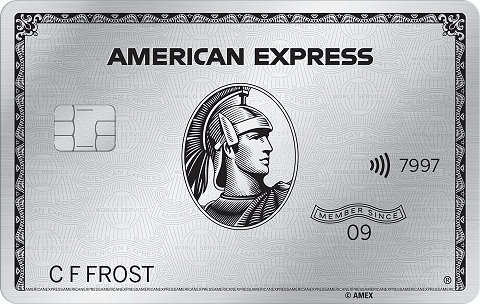
on American Express' website
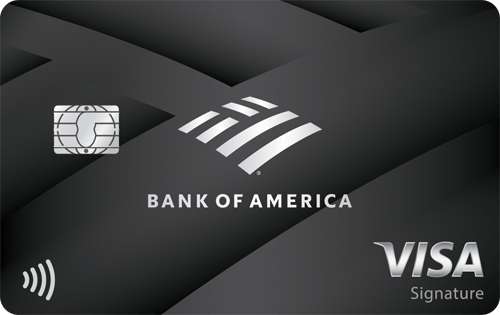
on Bank of America's website

on Chase's website
Up to $200 annually with your preferred airline. Enrollment required. Terms apply.
Up to $100 annually.
$300 annual statement credit for travel purchases.
» Learn more: The best travel credit cards right now
Once comfortably in your seat, you can connect to Wi-Fi on Air Canada flights in three simple steps.
Go to “Settings” on your mobile device. Set your device to “Airplane mode” and turn on Wi-Fi.
Select “ACWiFi.com” to connect to the airline’s Wi-Fi network.
Launch your browser and go to “acwifi.com” and follow the instructions from there.
If you need technical support during your flight, select “Wi-Fi Onboard” for assistance from Air Canada’s Wi-Fi service provider.
Unless you have 75K or Super Elite Aeroplan status, chances are Air Canada Wi-Fi will cost you. You might be able to save a few bucks by purchasing your pass ahead of time if you’re sure you’ll need to be connected.
The good news is the airline is focusing its efforts on getting free in-flight Air Canada Wi-Fi for all its passengers in the future. It’s testing out “full, fast and free” Wi-Fi for its regional flights and plans on expanding that to its other customers.
How to maximize your rewards
You want a travel credit card that prioritizes what’s important to you. Here are our picks for the best travel credit cards of 2024 , including those best for:
Flexibility, point transfers and a large bonus: Chase Sapphire Preferred® Card
No annual fee: Bank of America® Travel Rewards credit card
Flat-rate travel rewards: Capital One Venture Rewards Credit Card
Bonus travel rewards and high-end perks: Chase Sapphire Reserve®
Luxury perks: The Platinum Card® from American Express
Business travelers: Ink Business Preferred® Credit Card
On a similar note...

Use our online tools to manage your booking , or view travel requirements .
Oh no! An error has occurred and we are currently unable to display your total redeemable Aeroplan Points. You can still accumulate Points with your next booking!
- Create a New Profile
- Travel Agent Access
By signing into your account, you agree to Air Canada Vacations Terms of Use and consent to its Privacy Policy .
If this is your first booking with us, create an account now to save your information. It will only take a minute and you'll be able to check out even faster next time you book.
Now you're closer to booking your dream vacation!
WELCOME, {0}!
The password you just tried to login with was temporarily set up on your behalf. For security purposes, you must reset your password before you can continue.
SESSION EXPIRATION WARNING
Your session is about to expire. Do you want to continue?
SESSION EXPIRED
Your session has expired and you have been signed out. You will be redirected to the homepage.
Your session has expired. You will be redirected to the homepage.
Before You Go
Make sure you're prepared, and you have everything you need before you go on your next trip.
Prepare for your vacation
- Check-in anytime within 24 hours of departure
- Check your flight status
- Print travel tickets and vouchers
- Add an Aeroplan® number to your booking
- Verify carry-on and checked baggage allowances
- Verify check-in and boarding times
- Check off our travel packing lists for a trip to Europe or for a beach vacation !
Access your booking online here to modify or manage your booking or contact us toll-free at 1 866 529-2079.
- To reserve your seat in advance, go to our Manage Your Booking page online or call us at 1 866 529-2079, after completing your booking. Make sure to have your confirmation number handy.
- Advanced seat selection starts at $20 each way. Check out advanced seat selection prices per seat type and destination.
- Free advanced seat selection is available to all passengers travelling in Business Class service.
Upgrade your flight to Business Class or Premium Economy .
Booked a cruise? Register your cruise online .
Booked a Disney® package? Check-in online 10 days prior to departure.
STAY INFORMED
You may be required to pay for a local insurance fee per person upon registration or entry into a country. Please note that the amount of the local insurance fee is not reflected in your package booking price and will need to be paid separately to the local authorities of the destination you are visiting.
Ensure also that you are in compliance with the entry requirements of your destination, such as government-or airport authority-imposed taxes/tourist levies which are not included in your fare and can be collected upon arrival in or before departure from the country you are visiting (ex. Mexico’s Quintana Roo Tourist Tax).
We encourage you to consult the government websites of your selected destination prior to your departure for more information.
Be sure to stay up to date with the local news of the destination you'll be travelling to.
Visit our Travel Advisories page for latest news and updates.
Travellers can trust us for vacations with peace of mind. If the U.S. National Hurricane Center/Tropical Prediction Center (NHC/TPC) issues a Tropical Storm Warning, Hurricane Watch or Hurricane Warning for your selected vacation destination within 48 hours of your departure, you may be able to change your date, change your destination or choose from other rebooking options. Options may differ if you have an Air Canada Vacations Group or Cruise booking, please contact us for more details.
EXTRA INFORMATION
Save up to 45% off airport parking with Park N' Fly
If you're flying with Air Canada rouge and want to learn more, click here .
More questions? Find out more information in our Frequently Asked Questions or contact us at 1 866-529-2079
We're looking for the best hotels for you.
We're looking up your booking history.
Solar eclipse warnings pile up: Watch out for danger in the sky, on the ground on April 8

Editor's note: An updated cloud forecast for the April 2024 total solar eclipse is in. Read the latest eclipse forecast and news as of Wednesday, April 3 .
The upcoming solar eclipse , as exciting and fun as it promises to be, is also coming with a growing number of safety warnings — both for what will happen in the sky and what will happen on the ground.
In late March, we've heard warnings about potentially dangerous fake eclipse glasses , the possibility for increased car c rashes around the time of the eclipse and possible air travel headaches due to delayed or cancelled flights.
Safety is always a concern around solar eclipses, when millions of people will look to the sky as the moon passes in front of the sun. Looking at the spectacular event requires special glasses to prevent eye damage . Plus, tourists from around the country will be flocking to a narrow band of land from Texas to Maine — the path of totality, where the shadow of the moon will plunge the Earth into darkness.
Warning issued about fake eclipse glasses
"Counterfeit and fake eclipse glasses are polluting the marketplace," the American Astronomical Society announced in a statement in late March.
Using fake eclipse glasses – or no glasses at all – to look at the eclipse is dangerous to your eyes: Overexposure to sunlight "can cause severe eye injury, ranging from temporarily impaired vision to permanent blindness," the AAS said. They recommend buying from a vetted vendor and testing the glasses before the eclipse.
Here's how to tell if your glasses are legit.
It's also worth noting that you may be able to score a free pair of eclipse glasses .
Bad traffic and deadly traffic accidents
Traffic is predicted to be bad and potentially deadly — especially after the eclipse ends . Millions of people will crowd into the narrow path of totality, then most will attempt to leave all at once as soon as the eclipse is over.
Experts warn the excitement could create dangerous and busy automobile traffic conditions as people pack into the small part of the country with the best view.
Roads could be especially packed at the center of the eclipse's path as Americans who want the best view crowd into cities, towns and remote areas, many without the infrastructure to handle big crowds.
In Texas, which is expected to bear the brunt of the crowds, the state's Department of Transportation is preparing highway signs that will say, “NO STOPPING ON HIGHWAY TO VIEW ECLIPSE” and “NO PARKING ON SHOULDER, KEEP MOVING.”
Crews in Texas are also pausing some road construction and maintenance work on major corridors in the path of the eclipse April 7-9, based on traffic volumes.
More: The April total solar eclipse could snarl traffic for hours across thousands of miles
When a total solar eclipse passed over the U.S. in 2017, reports say some traffic jams didn't fully clear for more than 12 hours in some areas.
Even worse, a recent study reported that the 2017 eclipse "was associated with increased risks of a fatal traffic crash" – potentially as much as a 31% increase, the study said .
Air travel also impacted
The Federal Aviation Administration (FAA) is offering guidance to commercial planes and private aircraft ahead of the eclipse .
"Due to the high volume of traffic along the eclipse path, (airport) arrivals can expect lengthy delays during peak traffic periods," the FAA said.
Airports in Texas, Vermont, Maine, Canada, New Hampshire, Indiana, Ohio, Pennsylvania, Oklahoma, Arkansas, Illinois, Kentucky and Missouri will be primarily affected by the eclipse , the FAA said.
"The purpose of this notice is to inform airmen of the possible impacts to air traffic and airports along the eclipse path during the period April 7, 2024, (6 a.m. EST) through April 10, 2024, (midnight EST)," the FAA said.
More: What travelers should know about FAA advisory on total solar eclipse before April 8
Contributing: Jonathan Limehouse and Kayla Jimenez, USA TODAY
The April 8 solar eclipse will bring weird sights, sounds and feelings
The darkening of the sky on April 8 will bring with it a plethora of strange phenomena.
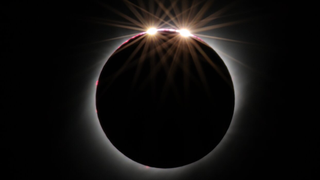
Bailey's beads appear around the moon
- Diamond ring
- Atmospheric manifestation
- Revealing hidden stars and planets
A horned 'devil' may appear!
- Shadow bands
- Weird colors
- Bending light
- Temperature shift
- Animal behavior
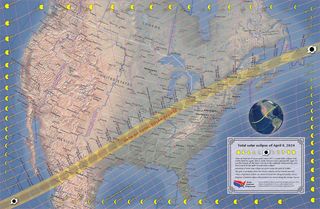
You can watch the total solar eclipse live on Space.com . And keep up with all the actions with our total solar eclipse 2024 live updates blog.
On Monday (April 8), the sky over a swathe of North America will briefly darken as the moon covers the sun completely during a total solar eclipse.
For a maximum of 4 minutes and 28 seconds along a 115-mile-wide (185 kilometers) and 10,000-mile-long (16,000 km) path passing through Mexico, the United States and Canada, the moon will completely cover the sun, and the sky will fall dark. And, outside this path of totality , observers will be treated to a partial solar eclipse, which is still a sight to behold.
It's not surprising that our ancient ancestors viewed total solar eclipses with trepidation and fear. They were often thought to be dire portents from the gods, indicating the deities' displeasure — or observations of the sun being consumed by fearsome creatures like dragons, which needed to be scared away with loud noises.
In our current (mostly) scientifically enlightened times, we have abandoned such supernatural explanations. But rejecting the concept of star-eating dragons doesn't mean that the total solar eclipse isn't capable of throwing up some unusual and phenomena that may leave witnesses scratching their heads.
Related: Total solar eclipse 2024: Everything you need to know
Space.com takes you through a brief list of some of the strange phenomena that may distract you as you attempt to take in the most exciting astronomical event of 2024!
Astronomical occurrences

As the moon makes its final approach to the sun in the sky, light will begin streaming through the valleys, mountains, craters , and rough terrain at the edge of the lunar disk. This creates droplets of light at the very edge of the moon's disk called " Bailey's beads ."
Get the Space.com Newsletter
Breaking space news, the latest updates on rocket launches, skywatching events and more!
Bailey's beads are named after English astronomer Francis Bailey, who described the phenomenon in 1836. Ironically, Bailey may not actually be the discoverer of Bailey's beads. Edmond Halley made the first recorded observations of Bailey's beads during a solar eclipse on May 3, 1715, also correctly describing their cause.
On April 8, watch out for Bailey's Beads before the moon completely covers the sun , and again as the lunar disk begins to move away from the solar disk.
The sun gives the moon a diamond ring

The appearance of Bailey's beads at the edge of the moon may be accompanied by another striking phenomenon.
A "diamond ring" happens during a total solar eclipse just moments before the point at which the moon completely covers the sun, known as totality. This is caused by the last sunlight streaming through the rugged terrain at the edge of the lunar disk.
During the 2024 total solar eclipse, skywatchers can attempt to observe a rare "double diamond ring" when two prominent points of sunlight appear at the edge of the moon.
Related: The moon: Everything you need to know about Earth's companion
The sun's atmosphere manifests

Normally, when observing the sun, the atmosphere of our star is "washed out" by light flowing from what can roughly be described as the solar surface, the photosphere.
During a total solar eclipse, however, photons from the photosphere are blocked, and the two elements of the solar atmosphere, the outer layer or corona and the inner layer or chromosphere become more visible.
The corona will appear as waving white streamers surrounding the blacked-out solar disk. The chromosphere will appear as a more subtle, thin halo of color, mostly pink and red, closer to the lunar disk. The eclipse may also reveal solar filaments made of plasma and molded by solar magnetic fields extending out from behind the moon.
Hidden stars and planets are revealed

Some skywatchers may be focused on other solar system bodies or stars farther afield than the sun during the April 8 total solar eclipse.
According to Space.com skywatching columnist Joe Rao , some of the planets that may make an appearance during totality, which would usually be hidden in daylight, will be Venus , around 15 degrees to the west of the sun, and Jupiter , 30 degrees east of the star. Other planets that may be visible are Saturn and Mars , which will be 35 degrees and 36 degrees to the west of the sun, respectively. (Your fist held at arm's length covers about 10 degrees of sky.)
For eclipse watchers on the path of totality outside Mexico and Texas, the brightest star over Earth, Sirius, will be over the horizon and should be visible toward the east-southeast. Among the other fainter stars that should become apparent are the Goat Star Capella , high in the east-northeast, and Rigel , lower in the southeast.

Don't panic! We haven't slipped back into medieval fears and superstition; the "horned devil" we are speaking about in this case is Comet 12P/Pons-Brooks . The comet, which can currently be seen in the night skies of the Northern Hemisphere, has a strange "horned aura" resulting from the outflow of its icy material that has resulted in it being nicknamed the " devil comet ."
This faux-satanic space rock visits the inner solar system around every 71 years and will be at its closest to the sun on April 21, 2024. That means Comet 12P/Pons-Brooks will be fairly close to the sun when the moon will obscure it on April 8, according to EarthSky.org .
If it is visible, the comet should appear between the sun and Jupiter, but closer to the gas giant. Whether it can be seen or not on the day of the eclipse will depend on the ferocity of the explosions of material that burst from it, boosting the size of its halo and the brightness of its glow.
Related: A 'horned' comet may be visible during the 2024 total solar eclipse
Strange light effects
Shadow bands sweeep across earth.

Shadow bands are one of the strangest effects associated with solar eclipses. These alternating light and dark bands can sometimes be seen during these events on the ground and buildings in the path of the eclipse.
First occurring around the time of totality, shadow bands initially seem disordered and chaotic but become increasingly well-ordered and more prominent as totality approaches. These bands are caused by atmospheric turbulence over Earth, which causes refraction of and collimation of sunlight when the solar disk is 99% covered.
Shadow bands are tough to image because they are only briefly visible and don't occur everywhere in the path of totality. The 1-inch to 2-inch-wide (2.5 to 5 centimeters) bands slide across the ground and buildings at a pace of around 10 feet (3 m) per second.
Colors look different
During the solar eclipse, many skywatchers will see colors shifting, giving familiar objects unusual hues. This natural shift in color perception is caused by fluctuating light levels resulting from the darkening of the sun.
Colors the human eye sees as rich and vibrant in bright light, like red and orange, become muted compared with blues and greens, which brighten in dim light. The rapid dimming of the sun during a total solar eclipse heightens this phenomenon, called the " Purkinje shift ," making the eclipse a potentially surreal event in which the most familiar objects look almost alien.
Light gets bent!

Some scientists will see the total solar eclipse as an opportunity to test one of Albert Einstein 's most revolutionary ideas, general relativity .
This 1915 theory of gravity suggests that massive objects warp the very fabric of space-time . When light passes this warping from a background source, it too is curved, an effect called gravitational lensing . This results in those background sources apparently shifting position in the sky.
When the sun darkens on April 8, scientists have the chance to observe the shift in the position of background stars caused by the mass of our star and its warping effect on space-time.
Eclipses have a long history of being used to verify general relativity. The first experimental verification of the theory, which was not initially widely accepted by the scientific community, came about when two teams of scientists led by Frank Watson Dyson and Arthur Stanley Eddington observed gravitational lensing during the May 1919 total solar eclipse from the African island of Príncipe and the Brazilian town of Sobral.
The natural world shifts
Eclipses are cool.
The sun isn't just a source of light over Earth , it is also our planet's major source of heat. That means that, as the moon covers the sun on April 8, eclipse watchers may suddenly find themselves needing a jacket.
The amount by which the temperature fluctuates during the total solar eclipse will depend strongly on the location from which it is viewed. Temperatures could drop by as little as 5 degrees Fahrenheit (2.8 degrees Celsius) or as much 10 degrees F (5.6 degrees C).
As the moon covers the sun, onlookers may also experience a sudden drop in wind speed. As the moon moves away, winds will pick up again, but they could be blowing in an entirely different direction.
— A 'horned' comet may be visible during the 2024 total solar eclipse
— How photos of the April 8 solar eclipse will help us understand of the sun's atmosphere
— How fast will April's total solar eclipse travel?
Animals act differently
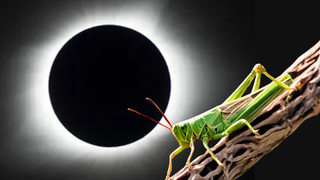
Animal behavior is controlled by many factors, one of which is an internal biological clock that keeps track of a " circadian rhythm ." This rhythm is optimized by light, with diurnal animals prompted to sleep when the sun sets and nocturnal animals prompted to rise at the same time. That means the dimming light of the eclipse and the "false dusk" could prompt the release of hormones related to the sleeping and waking cycle in animals.
Additionally, the drop in temperature could cause a drop in atmospheric pressure that feels like an approaching storm to animals, making them anxious or fearful. Eclipse watchers may also expect to hear a dawn's chorus from birds as the eclipse ends, fooling our feathered friends into believing it is a new day.
During the total solar eclipse, one project that will be attempting to better understand the effect of the eclipse on wildlife is the NASA Soundscapes project. This multisensory approach will see citizen scientists making recordings of the sounds heard as the sky falls dark, and also make written accounts of what is seen, heard, or felt during the event.
Related: Solar eclipse glasses: Where to buy the best, high-quality eyewear
People get emotional

It isn't just animals that will potentially get spooked by the darkening skies of the total solar eclipse eclipse. Humans can also be emotionally affected by these events.
NASA advises that, if skywatchers aren't too busy looking for Bailey's Beads, diamond rings, or shadow bands, they should take a look at the people around them and observe if anyone has a deep emotional response when the sun goes into totality.
Of course, these shifts in emotions are temporary. If you intend to view any eclipse stages, the most important thing to consider is how to safely view it. Looking at the sun without adequate protection at any time is harmful to the eyes, so eclipse watchers should take precautions on April 8.
Sunglasses, regardless of how dark they are, can't protect the eyes from the effects of the sun, so specialized eclipse glasses made from safe solar filter materials will be needed. If skywatchers intend to watch the event with a telescope, special filters will be needed to make this a safe viewing experience.
Our how to observe the sun safely guide tells you everything you need to know about safe solar observations.
Submit your photos! If you capture a photo of the April 8 total solar eclipse or any of these strange effects and would like to share it with Space.com's readers, send photos, videos, comments, and your name, location and content usage permission release to [email protected].
Join our Space Forums to keep talking space on the latest missions, night sky and more! And if you have a news tip, correction or comment, let us know at: [email protected].

Robert Lea is a science journalist in the U.K. whose articles have been published in Physics World, New Scientist, Astronomy Magazine, All About Space, Newsweek and ZME Science. He also writes about science communication for Elsevier and the European Journal of Physics. Rob holds a bachelor of science degree in physics and astronomy from the U.K.’s Open University. Follow him on Twitter @sciencef1rst.
No, you didn't see a solar flare during the total eclipse — but you may have seen something just as special
My formal 2024 solar eclipse apology
ULA chronicles the rise of Vulcan rocket in new employee-drawn comic book
Most Popular
- 2 Watch an exclusive clip from the CNN' 'Space Shuttle Columbia: The Final Flight' finale (video)
- 3 'Fly Me to the Moon' trailer mixes real-life Apollo history with moon landing hoax
- 4 HALO Space unveils capsule design for stratospheric space 'glamping'
- 5 One of the universe's most 'extreme' dead stars just sprang back to life unexpectedly
Home / Travel Advisory
Travel Advisory
Information regarding travel restrictions, entry requirements, weather advisories, and other factors that may affect your travel plans.
Related Information
- Cancel Flight
- Travel Tips
- Travel Disruption Help Center

IMAGES
COMMENTS
Daily Travel Outlook. For Air Canada's response to COVID-19 and how to adjust your current or future travel with us, click here . See below for today's outlook on possible disruptions to Air Canada, Air Canada Rouge and Air Canada Express flights operated by Jazz. When forecasted weather or other conditions may cause flight delays and ...
Find out the safety and security conditions for your travel destination and the risk level assigned by the Government of Canada. See the latest updates and filter by destination name or risk level.
To view the affected flights, click here. If your flight is affected, you may contact us directly at 1-800-296-3408. See the current travel advisories from Air Canada Vacations! Get news about travel delays & airport closures Find out about weather alerts Get the latest travel updates.
Should you need to travel, Air Canada is flying to destinations across Canada, the U.S., ... Restrictions vary from country to country; consulting the Canadian government's travel advisories can help. At least 120 countries require travellers to present proof of a negative Covid-19 test before arrival, generally within 72 hours of the date ...
The federal government has issued an advisory against non-essential international travel until further notice. Some countries plan to reopen to tourists in June or July, but travellers may face strict entry requirements and travel insurance exclusions.
2021-02-12. The Government of Canada is announcing today further testing and quarantine requirements for international travellers arriving to Canada's air and land ports of entry. These new measures will help prevent variants of concern from reaccelerating the pandemic and making it more difficult to contain.
Air Canada resumes weekly flights to Israel despite government travel advice to avoid non-essential trips. Posted 8 hours ago Rachel Goodman
Fly in style! Treat yourself to an enhanced, seamless journey to your destination by upgrading to Business Class or Premium Rouge. See all the travel info you need for travelling with Air Canada Vacations! Find out about travel insurance & protection Retrieve your booking online Browse brochures & more.
Air Canada has unveiled its expanded Travel Ready hub, an interactive online tool to help customers plan and prepare for upcoming trips. Customers can use it to easily and conveniently obtain such information as necessary travel documentation, COVID-19 test requirements and country travel restrictions for any global destination.
September 3, 2021 Ottawa, Ontario . As was announced on July 19, the Government of Canada will allow fully vaccinated foreign nationals meeting the conditions to enter Canada for discretionary (non-essential) purposes starting on September 7, 2021. This decision is based on the latest available data, scientific evidence and epidemiological situation both in Canada and internationally.
The Public Health Agency of Canada's Travel Health Notices outline potential health risks to Canadian travellers and recommend ways to help reduce them. Notices remain in effect until removed. Travel Advice and Advisories. Country-specific information on safety and security, local laws and customs, entry requirements, health conditions and ...
COVID-19 mask use: Advice for community settings . Returning to Canada. If you feel sick or experience any symptoms of COVID-19 during your travel to Canada or upon arrival, you should: wear a well-fitted respirator or mask ; inform the flight attendant, cruise staff and/or a border services officer upon arrival. You may be referred to a ...
Reissued with obsolete COVID-19 page links removed. Exercise normal precautions in Canada. Read the Country Information page for additional information on travel to Canada.. If you decide to travel to Canada: Enroll in the Smart Traveler Enrollment Program to receive Alerts and make it easier to locate you in an emergency.; Follow the Department of State on Facebook and Twitter.
The decision to travel is yours alone. Following the Government of Canada's official travel advice will enable you to make well-informed decisions for your personal safety and security. If a Travel Advisory is issued for your destination, it may affect your travel insurance. Make sure you understand any terms and conditions in your insurance ...
Flight Disruptions. We're committed to providing the highest quality of service to all our customers, and we believe it's important to make our service commitments readily available to you. If your flight operated by Air Canada, Air Canada Rouge or Air Canada Express was disrupted, we're here to assist and provide you with some helpful ...
You should travel to Mexico by air to avoid international land border crossings, particularly along the border with the United States, in the following cities: ... The two levels below are official Government of Canada Travel Advisories and are issued when the safety and security of Canadians travelling or living in the country or region may be ...
Your ticket may be refundable, although perhaps subject to a cancellation fee. If your ticket is changeable, but the airline is not reachable, you may rescind the contract and seek a refund. Some tickets are sold with guarantees for a no-fee cancellation for future credit. Your travel insurance policy may provide you some coverage.
Air travel. We do not make assessments on the compliance of foreign domestic airlines with international safety standards. ... IMPORTANT:The two levels below are official Government of Canada Travel Advisories and are issued when the safety and security of Canadians travelling or living in the country or region may be at risk. Avoid non ...
Nearly all of Air Canada's wide-body planes have streaming-quality Wi-Fi and most of Air Canada's narrow-body aircraft are also equipped with Wi-Fi. The exception is the 737 MAX 8 (7M8) fleet ...
Check-in anytime within 24 hours of departure. Check your flight status. Print travel tickets and vouchers. Add an Aeroplan® number to your booking. Verify carry-on and checked baggage allowances. Verify check-in and boarding times. Check off our travel packing lists for a trip to Europe or for a beach vacation!
Office of the Spokesperson. April 19, 2021. State Department Travel Advisory Updates. In order to provide U.S. travelers detailed and actionable information to make informed travel decisions, the Department of State regularly assesses and updates our Travel Advisories, based primarily on the U.S. Centers for Disease Control and Prevention (CDC ...
Warnings have been issued about fake eclipse glasses, traffic danger and possible air travel headaches. Here's what to know. ... Vermont, Maine, Canada, New Hampshire, Indiana, Ohio, Pennsylvania ...
For a maximum of 4 minutes and 28 seconds along a 115-mile-wide (185 kilometers) and 10,000-mile-long (16,000 km) path passing through Mexico, the United States and Canada, the moon will ...
Travel Advisory. Information regarding travel restrictions, entry requirements, weather advisories, and other factors that may affect your travel plans. Check Flight Status Change Flight. There are currently no travel advisories. Related Information. Cancel Flight; Travel Tips; Travel Disruption Help Center;